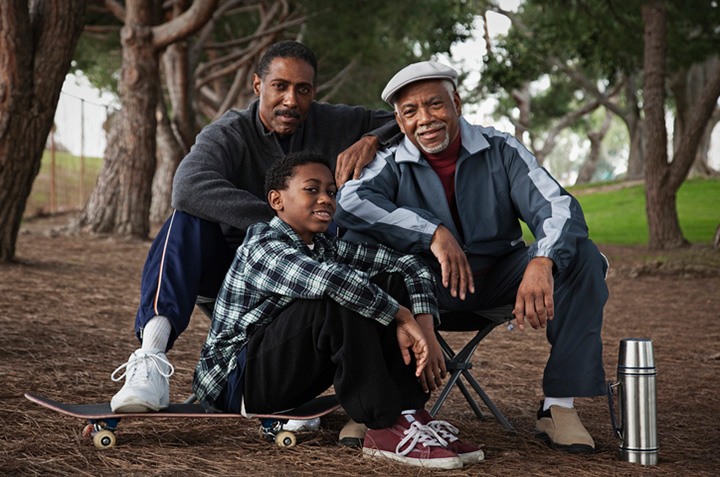
After settling back into your daily routine following the holidays, it’s a good time to develop new habits and encourage your loved ones to take care of their mind, body and soul – especially Black men. According to the Centers for Disease Control and Prevention (CDC), Black men rank the lowest for life expectancy and have the highest death rates compared to both men and women of other racial groups. In fact:
- Black people are twice as likely to develop Alzheimer’s
- Suicide is the third leading cause of death for Black Americans
- Black men ages 28-45 have a 50 percent higher predisposition to high blood pressure
- Black people are twice as likely to die from diabetes
These research findings show and emphasize the importance of self- and preventive care, especially for Black men. Here are four ways you can start making a difference:
Annual Wellness Exam
While most Black men delay preventative wellness exams, annual checkups with a doctor can eliminate questions and anxiety when it comes to common health concerns that Black men share. Some of these health concerns include the effects of COVID-19, testosterone levels, hypertension, vaccinations, diabetes and even conditions that aren’t openly talked about such as prostate and testicular cancer. That’s why finding a doctor who understands risk factors, ways to maintain wellness and inequities in the healthcare system that Black people face is important in treating and preventing illnesses.
Use Free Resources
We can’t focus on health without acknowledging socio-economic factors like poverty, discrimination and the lack of access to affordable healthcare, which is most common among minority communities. This becomes evident as we see the levels of chronic conditions rise through generations. That’s why programs like the National Association of Free & Charitable Clinics (NAFC) and the We Can Do This COVID-19 education program are important because they provide for people with or without health coverage.
Get Vaccinated
The national public health emergency has ended, but it’s still important to stay informed and updated on your vaccines. Research shows that a significant portion of Black people have vaccine hesitancy, despite being disproportionally affected by vaccine preventable diseases. Talk to your doctor today and make sure you’re up to date on your vaccines to protect your health and your loved ones.
Make Lifestyle Changes
Proper sleep, exercise, and nutrition can go a long way. These changes help build strength, discipline and endurance in mental, physical, and cognitive health. They also help prevent diseases like diabetes, hypertension, and heart disease. It can be as simple as eating more fruits and veggies and walking around the neighborhood, which creates positive effects over time. Other changes like cutting back on salt intake, drinking less alcohol and smoking less can also lower the risk of developing illnesses.
Mental Health
Only one in three Black adults receive the mental health treatment they need. Work, family and friends are great social and emotional support, but getting professional help is just as effective and equally as important. Despite the stigma on mental health being alleviated, especially for Black men, many socio-economic factors and the fear of getting help still linger. The following organizations below offer affirming, cost-effective mental health resources for Black, Indigenous and People of Color (BIPOC):
Practicing mindfulness, a form of meditation where you intensely focus on the present moment, can quell a busy mind. Body-based practices such as tai chi, yoga, massages and reiki, can also help relieve stress, release endorphins and increase concentration and mental capacity. When you treat these activities like hobbies rather than chores, this can help improve your health.
If you or anyone you know is contemplating harming themselves, dial 988 to reach the National Suicide and Crisis Prevention Hotline – available to help 24 hours a day, seven days a week.
Was this article helpful?